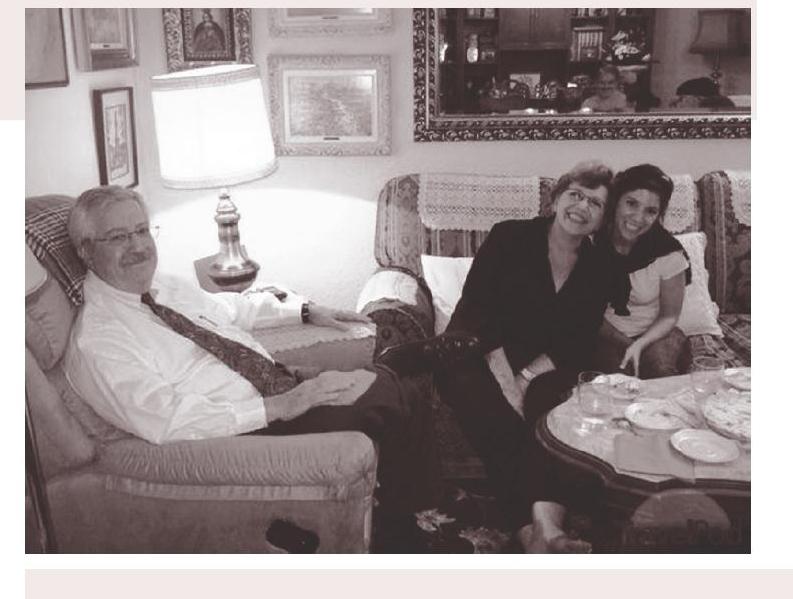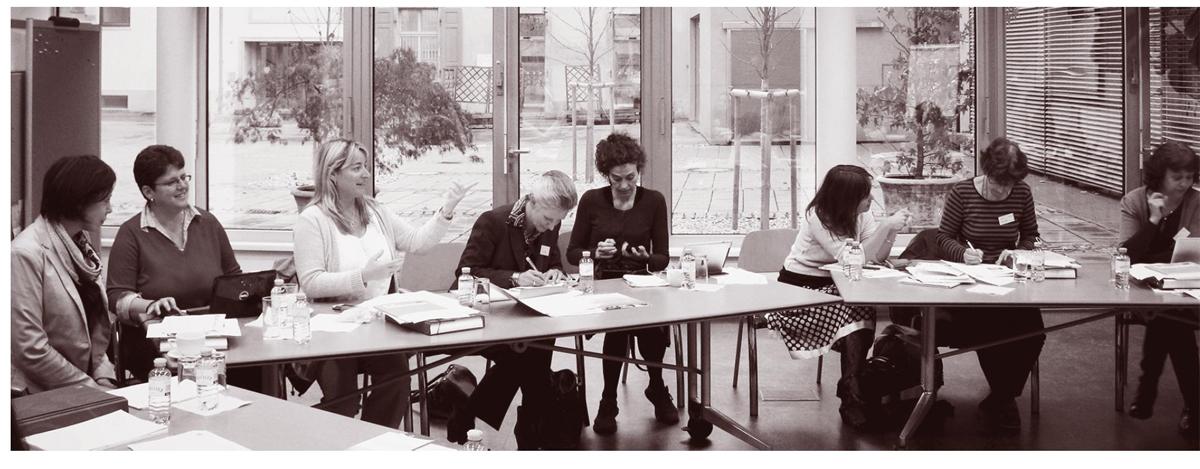远近亲疏,人间冷暖
2016-05-14ByAaronA.Vessup
By Aaron A. Vessup


The Greatest Gifts
在不同的国家和民族,人际交往距离是由文化决定的。中国传统观念中的人际关系较为紧密,是典型的“集体主义”;而在类似美国这样的西方国家,个体的观念则更强,人际相对疏远。但就现代社会总体而言,人与人之间的疏离感却越来越强,个体也因此变得更孤单。花时间与珍惜的人在一起,无论是家人或是朋友,都是长情的付出,也是珍贵的收获。
“Wow! This place looks like a museum! Do you really live here? So many interesting things!”
“You sure must love to collect things, are these from China?”
Whenever Chinese guests first step into my home the above comments are frequent and most common. While many people in China are curious about how foreigners live, often this same curiosity extends to interest in how outsiders cope and survive in a new country.1 I can say that Chinese tend to be most hospitable2 and welcoming. I also must say that having also received a wide range of keepsakes has influenced my sense of gratitude immensely.3
As an American teacher it is rare, and almost unheard of for students to give gifts to teachers. In fact the notion of accepting gifts runs contrary to most public schoolboard policies.4 However, there can be and are exceptions. Our high school sports team established a tradition of giving a yearly trophy5 to the coach whom we all loved. At an eastern university where I taught, one of my students gave me a special large wooden salad bowl with accessories, for coaching her to a regional and national public speaking championship.6 In all my 30 years of teaching in the United States, I have seldom been invited to the homes of my students. On the other hand, however, my classes have been recommended to family members. This personal acceptance has even included teaching parents, and Adult Education returning students who were related. These students enrolled in7 my classes based upon recommendations. I have also been invited to attend a few special family celebrations in the USA. Such invitations were mainly from my foreign students.
In China, the giving of gifts, home visit invitations, and invitation to special celebrations is a common, albeit an unusual experience for most foreigners.8 In my home in China there are plaques, paintings, poetry scrolls, statues, teapots,9 and many bottles of Chinese wines. I have, unfortunately, misplaced the special handmade shoes given to me, a sample product from one of my students hometown.10 What I appreciate and remember most, however, is the willingness of families in China to open their hearts and homes unabashedly, without reservations.11 This simply is not the “American Way”, but it is the Chinese Way. Spending time eating and chatting, or simply sipping12 tea in quiet gratitude toward each other, is a most precious gift to receive. Few things can surpass13 the joys of being together. As Confucius (“Kongzi”) is credited for saying, “You peng zi yuan fang lai, bu yi yue hu?”14 Is it not great when friends meet?
The inherent values15 from sharing time and space was made apparent in my early student years. A part-time job in a custodial Rest Home for senior citizens left a deep impression on me.16
“Did my son call yet?”
“Is this the day for my daughter to visit me?”
“No, Mrs. Anderson…”
“Im sorry Mr. Smith, there is no one here to see you today.”
These were regular dialogues between the patient-residents17, workers and volunteer helpers. I was a temporary staff member in the Golden Sunset home for the aging.18 It was quite sad to see gloom19, loneliness, and despair spread among the residents who found it difficult to hide their unhappiness. In fact, even worse was the abuse against the elderly whose frequent complaints became intolerably annoying.20 Sad to say, some custodial staff workers would lock away seniors in closed toilets and lavatories for long time periods.21 These workers pretended forgetting their duties and immediate responsibilities. Other occasions punishing residents were proceeded with verbal threats, followed by repeated strap lashes with belts or other hard objects.22 You could hear the beatings and crying. Working in such places made it clear that positive personal attention was a premium for people cast aside by family members.23 Obviously one consequence of a fast-paced society is the chronic24 lack of time. Very few people have time to spend with people whom they claim to care about deeply.
Chinese people are well known for generously responding to emergencies. Several natural disasters have happened and thousands of Chinese have volunteered days, weeks, and months of their precious time. In the U.S., there are free temporary homeless shelters, food kitchens, legal aid offices,25 and hospital and health clinics supported with volunteers.
Even in China, more and more organizations are coming into being for the purposes of meeting the needs of human person-to-person contact. The “China Youth Volunteers” and the “Our Free Sky” (OFS) volunteer organization are just a few of many examples. A few days ago I attended an English Salon26 in the city run by locals in the community. I was squeezing out a few hours, which I really felt guilty over, in response to an invitation by an elderly Chinese man I had met on the bus.27 At this meeting in Beijing were people of all ages trying to learn and raise their English proficiency levels28. College students, and grandparents. The youngest was a little girl of seven years old, and the oldest was a man who was 87. Both of these individuals could speak English quite well. The host of the salon was, Mr. Gallee, a Chinese volunteer. He has been with the group since its formation two years before the Beijing Olympic Games.
I must say that I was happy to meet with this group and look forward to future meetings. Giving the gift of time is something very special in China. Sometimes giving time may involve sacrifices. However, it is important that we take time to know one another. We all need one another. The Confucian concept of filial piety29 must not stop with family relationships. Sharing time is actually a good way to help us all accept and appreciate our differences. This activity itself is part of the life-long process toward self-improvement. There is no greater emergency or crisis than to not face the unknown neighbor closest to us. We can start with a smile. We can continue with a willing to share our time.
1. 在中国,许多人对外国人的生活很好奇,这种好奇心还延伸到这群外乡人怎么在新的国家里应对和存活。extend to: 延伸至,扩至;outsider: 外人,局外人;cope: 应对。
2. hospitable: 热情友好的。
3. a wide range of: 许多的,各种的;keepsake: 纪念品,赠品;sense of gratitude: 感激之情;immensely: 极大地。
4. notion: 概念;run contrary to: 违反;schoolboard: 教育委员会,学校董事会。
5. trophy: 奖杯。
6. 我曾在东部的一所大学教书,我的一个学生为了感谢我指导她获得地区和全国的公开演讲冠军,送给我一个很特别的木制沙拉大碗,上面还带着装饰。wooden: 木质的;accessory: 装饰品。
7. enroll in: 就读于。
8. 在中国,送礼物、请客上门或参加特殊的庆祝活动是寻常的事,虽然这对大多数外国人而言是不常有的经历。albeit: 虽然,即使。
9. plaque: 匾,饰板;poetry scroll: 诗卷轴;teapot: 茶壶。
10. misplace: 忘记把……放在什么地方;sample product: 标志性产品,特产。
11. unabashedly: 不怕羞地;without reservation: 毫无保留地。
12. sip: 小口地喝。
13. surpass: 超过。
14. 孔子曾曰:“有朋自远方来,不亦乐乎?”be credited for: 被赞颂。
15. inherent value: 内在价值。
16. custodial: 照管的;rest home: 养老院;senior citizen: 老年人。
17. patient-resident: 住院病人。
18. temporary staff member: 临时工;the aging: 老年人。
19. gloom: 忧郁。
20. abuse: 虐待;intolerably: 无法容忍地。
21. lock away: 将……锁起; lavatory: 盥洗室。
22. be proceeded with: 以……进行;verbal threat: 言语威胁; strap lash: 鞭打。
23. premium: 奖品;cast aside: 抛弃。
24. chronic: 长期的。
25. shelter: 避难所,收容所;legal aid: 法律援助。
26. English Salon: 英语沙龙。
27. 这是受一位我在公车上遇到的老者之邀,但我只能挤出几个小时来参加,对此我深感愧疚。squeeze out: 挤出。
28. proficiency level: 熟练程度。
29. filial piety: 孝道。
